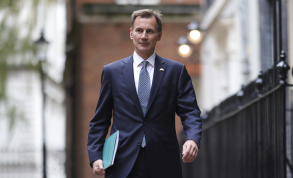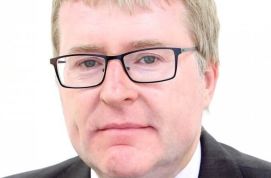NHS faces major efficiency challenge despite Budget increase
However, health service commentators warned that the extra funds were not sufficient to cover the impact of inflation – now standing at 11.1% as measured by the consumer price index. This left the service facing a major efficiency challenge and a long road to recovery.
Chancellor Jeremy Hunt said he accepted that efficiency savings alone would not be enough to deliver the NHS services the country needed, with health and social care prioritised for further increases. ‘Because of difficult decisions taken elsewhere today I will increase the NHS budget, in each of the next two years, by an extra £3.3bn,’ he said.
Treasury figures show the Department of Health and Social Care budget of £168.2bn this year rising to £176.2bn in 2023/24 and £180.4bn in 2024/25. For NHS England, this year’s £152.6bn budget will rise to £160.4bn and £165.9bn over the next two years.
The chancellor also committed to publishing a comprehensive workforce plan next year – a proposal he backed while chair of the Commons Health and Social Care Committee. The plan will include independently-verified forecasts for the number of doctors, nurses and other professionals that will be needed in five, 10 and 15 years’ time, taking full account of improvements in retention and productivity.
There have been increasing calls for such a report, with 100 health and care organisations adding their voices in a letter to the chancellor as recently as Thursday morning. While this will not help address the current workforce crisis – with 130,000 vacancies across the NHS in England – it should mean the NHS does not face similar shortages in years to come.
The extra funds for the health service come alongside calls for greater efficiency across the NHS. Seeking ‘Scandinavian quality alongside Singaporean efficiency’ could not mean asking frontline staff to work harder. ‘But it does mean asking challenging questions about how to reform all our public services for the better,’ said Mr Hunt.
The chancellor announced that he had asked Patricia Hewitt, former health secretary and chair of the Norfolk and Waveney Integrated Care Board (ICB), to advise on ‘how to make sure the new ICBs operate efficiently with appropriate autonomy and accountability.’
The chancellor rejected capital cuts as a false economy, sticking with overall capital budgets for the next two years, before freezing them at that level for the following three years. For the NHS, the capital departmental expenditure limit (CDEL) has been set at £11.7bn next year and £12.6bn in 2024/25. This would continue to support the new hospital programme.
Many health leaders have also called for increases in social care funding to help ease pressures on the NHS through more timely discharge of fit patients needing social care assessment and support. The chancellor said that the Dilnot reforms for social care – which would limit the contribution individuals make to their care – would be delayed, with funding reallocated to allow local authorities to provide more care packages and help free-up hospital beds.
I have therefore decided to allocate for adult social care additional grant funding of £1bn next year and £1.7bn the year after,’ he said. ‘Combined with the savings from the delayed Dilnot reforms and more council tax flexibilities, this means an increase in funding available for the social care sector of up to £2.8bn next year and £4.7bn the year after.’
Nuffield Trust chief executive Nigel Edwards said the autumn statement had provided much-needed extra cash. ‘But this is only around half of what the NHS had warned last month would likely be needed,’ he said. ‘It also does not account for the £2.5bn worth of inflation and other unexpected cost pressures the NHS has faced this current financial year.’
He added that the funding amounted to a real-terms increase in health spending per head, after adjusting for age, of less than 1% for the next two years, compared to the long-term average of 2.6%. ‘And [it] comes at a time when the NHS cannot afford to stand still and is desperately trying to increase the work it can do to clear record waiting times,’ he added.
Matthew Taylor, chief executive of the NHS Confederation said it was ‘a positive day for the NHS’, helping plug some of the funding gap that has built up because of soaring inflation and other pressures. But he warned that delivering challenging efficiency savings and improved performance in areas such as ambulance response times, accident and emergency waiting times and access to general practice would be tough. ‘NHS leaders will do all they can to meet the challenge and use the extra money as effectively as possible,’ he said. ‘But we must be clear with the public that we face a long road to recovery.’
The King’s Fund also raised concerns about the impact of inflation on the capital budget. ‘While it appears capital funding is protected in cash terms, with inflation at 11.1%, the government will not be able meet its plans to maintain and improve NHS buildings, equipment and IT and will need to cut back its ambitions,’ said Richard Murray (pictured), the fund’s chief executive.
A statement from the Association of directors of Adult Social Services said the social care funding provided some ‘welcome relief’ and would lessen the impact of the current crises. ‘The next step is to develop a long-term, fully funded plan that provides the right support for older and disabled people, and unpaid carers, together with an adult social care workforce plan that complements the one announced for the NHS,’ it said.
However, others questioned the reliance on raising council tax to increase available funding for social care, which risked creating greater inequality, with more affluent areas able to raise more.
Related content
The Institute’s annual costing conference provides the NHS with the latest developments and guidance in NHS costing.
The value masterclass shares examples of organisations and systems that have pursued a value-driven approach and the results they have achieved.